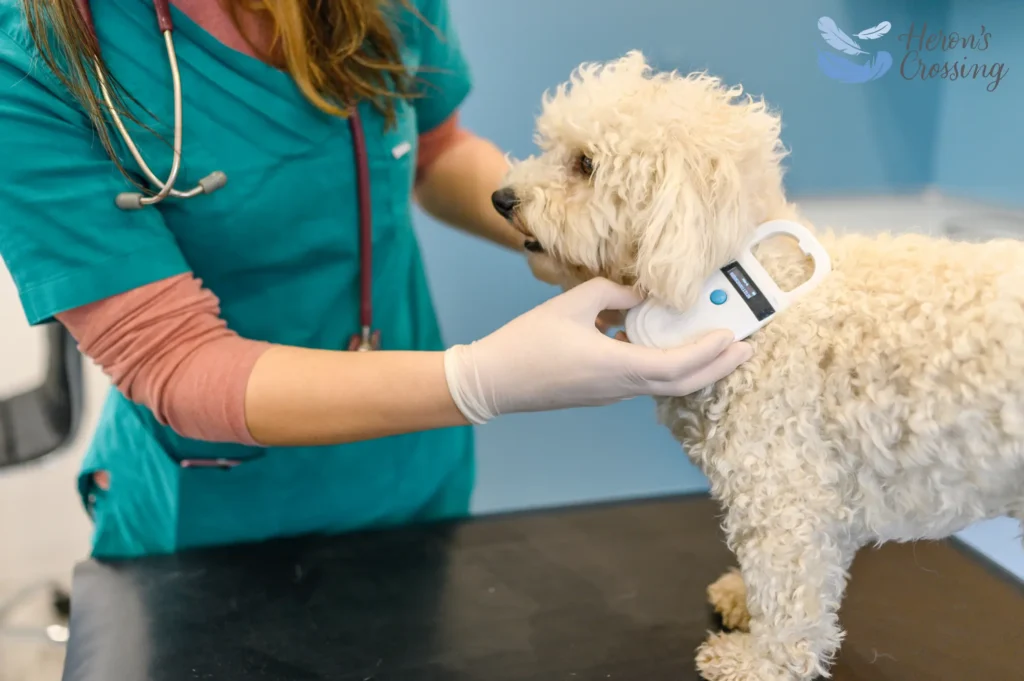When was the last time you updated your pet’s microchip information?
If your dog has a microchip, it can be a life-saver. Georgia law requires shelters to check impounded animals for a microchip so they can contact the owner before any animal they receive can be put up for adoption or euthanized. If your dog gets lost or separated from you, that tiny chip gives your pet valuable time and opportunity to be reunited.
The microchip is a tiny radio transponder, the size of a grain of rice, that is injected with a hypodermic needle somewhere near the back of the neck. It doesn’t hurt, and it isn’t electric. It is not a GPS device. It’s information can’t be hacked, and it can’t be erased by a magnet.
A hand-held scanner waved over the animal sends out a radio wave that activates the chip to transmit your dog’s unique ID number. This number helps to locate you through the microchip’s registry. Microchips from different registries operate at different frequencies, so a ‘universal’ type of scanner is best for detecting all of them.
But even if your dog is microchipped, could the shelter reach you? When was the last time you updated your pet’s information? You may have moved, changed names, email or phone numbers, changed vets, or your pet may even have changed pet parents.
The information has to be changed with the registry company that issued the chip, not your vet. Maybe you can’t remember which registry monitors your dog’s chip, so what can you do?
- Check your home records for your dog’s original microchip certificate.
- Call your vet to see if the registry is listed in your dog’s records there.
- Bring your dog to the vet to have the chip scanned. The way the number is coded will indicate which registry it came from.
Then set up an account online at your dog’s microchip registry to keep your information current. You may need to call first to get the account started. Be prepared for them to ask a lot of identifying questions before allowing you to make these changes. These are safeguards to ensure that your pet stays with you. Then you can keep the information updated regularly through the account.
It’s also up to you to change the information when there is a change in pet parents. You initiate the transfer, so the registry will know that the transfer is legitimate.
In 2021, Hawaii became the first US state to require microchips for all pets. Some cities or counties, such as Lowndes County, GA, are already instituting this law. So it is going to become increasingly more important to keep your dog’s information up to date.
It wouldn’t hurt to keep your pet registry’s phone number in your contact list, and to make it a part of your annual New Year’s to-do list.
What’s in the future? When you find a lost pet, it isn’t always easy to go to a vet to read the microchip number, especially in the wide expanses of Texas. So Best Friends Animal Society and El Paso worked on a plan with 24PetWatch to introduce solar powered reader stations in public parks. They’re called Reunite Sites. The scanner will produce a QR code on the screen to scan into your phone so you can contact the registry and report finding the lost pet. Now there’s more hope that these wayward little buddies can avoid being sent to a shelter at all.
Heron’s Crossing provides end-of-life care for pets in the Metro Atlanta area. In-home appointments with compassionate vets are available. If you’d prefer a home-like setting away from your home, our Decatur office is also available by appointment.

